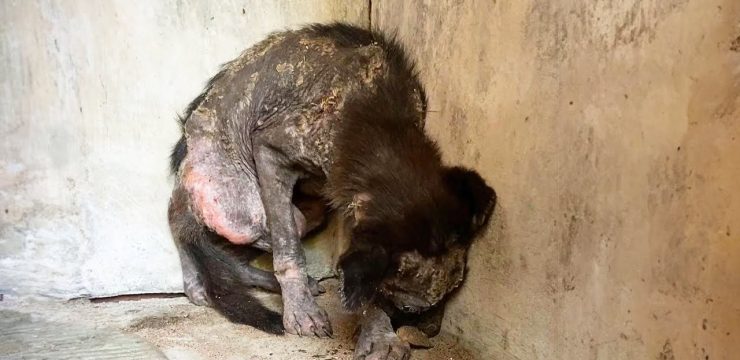Chris Watts, the Colorado man who shocked the nation with the murder of his pregnant wife and two young daughters in 2018, is now living in fear for his life inside a Wisconsin prison. Now 39 years old, Watts is serving multiple life sentences at Dodge Correctional Institution in Waupun. He pleaded guilty to the horrific killings of his wife, Shanann Watts—who was 15 weeks pregnant at the time—and their two young daughters, 4-year-old Bella and 3-year-old Celeste, affectionately known as “Cece.”

At the time of the murders, Watts was having an affair with a co-worker and appeared to be actively pursuing a new life without his family. Shockingly, in the hours following the killings, he exchanged text messages with his mistress as if nothing had happened. Initially, Watts attempted to shift the blame onto Shanann, claiming falsely that she had killed the children after he asked for a separation. However, after being confronted by investigators with mounting evidence, he confessed to killing all three of his family members.
According to police reports, Watts strangled Shanann in their Colorado home before placing her body in his truck. He then drove to a remote oil work site operated by his employer. There, in a horrifying sequence of events, he smothered his two daughters and disposed of their bodies by placing them in separate crude oil tanks. He buried Shanann in a shallow grave nearby. The brutality and premeditated nature of the crimes triggered national outrage and widespread media coverage, turning Watts into one of the most despised inmates in the U.S. prison system.
That infamy has followed him into incarceration, where he reportedly lives in near-total isolation due to the danger he faces from other inmates. Eddie Nieves, a former inmate at Dodge Correctional Institution, told The New York Post that Watts is widely reviled among prisoners—many of whom are themselves serving time for violent crimes. “A lot of guys would like to get their hands on him,” Nieves said. “He killed two little girls who didn’t do anything to deserve it. He’s the lowest of the low.”
In prison culture, crimes involving children—especially those involving the offender’s own children—are often considered among the most heinous. Nieves emphasized that even among society’s most notorious criminals, Watts stands out as particularly despicable. “When you’re in a place full of people who’ve done terrible things, and you’re still considered the worst—that says something. He’s evil.”
Watts now spends most of his time alone, according to reports. Isolated for his own protection, he is said to spend his days reading the Bible and writing disturbing letters detailing his crimes. Though he still receives some mail from a handful of pen-pals outside of prison, his life behind bars is one of solitude and constant monitoring. Prison officials reportedly provide him with heightened supervision to prevent other inmates from attacking him. “If the guards weren’t always around, everyone would take a swing at him,” Nieves added.
Watts’ isolation is not just administrative—it’s personal. Dylan Tallman, a former cellmate, described him as a complete social outcast. “When people found out he killed his kids, they wanted to kill him,” Tallman said. “I think I was his only friend.” Tallman’s account sheds light on how deeply hated Watts is, not just in the public eye, but also within the prison system itself.
Despite being hated by nearly everyone around him, Tallman claimed Watts is not entirely emotionless. He reportedly keeps photos of his daughters in his cell and spends hours each day praying for forgiveness. “He prays every day,” Tallman said. “He knows he can’t undo what he did, but he still asks for forgiveness.” While Watts may express remorse, for many people—inside and outside the prison walls—his actions are unforgivable.
Life inside Dodge Correctional Institution is known to be tough, but Watts’ experience is especially grim. Former inmates say that he rarely interacts with others, avoiding the cafeteria and yard whenever possible. When he does move about the prison, he’s typically escorted by guards for his protection. The fear of being attacked is a constant reality for him, and sources indicate that prison authorities take every precaution to avoid a potential incident. Inmates who commit crimes against children, especially their own, are considered pariahs and frequently targeted by other prisoners.
Even within this hostile environment, Watts appears to have some degree of self-awareness. He is said to reflect often on the consequences of his actions, though it remains unclear whether that reflection stems from genuine regret or the crushing weight of guilt and isolation. According to people familiar with his behavior in prison, he rarely speaks unless spoken to and spends long periods in silence. His Bible is reportedly his most consistent companion, and he often writes letters to no one in particular, reliving the events that led him to prison.
The story of Chris Watts continues to haunt the public, not just because of the unspeakable nature of his crimes, but because it defies the image of the “perfect family man” he once projected. To neighbors and friends, he had seemed like a loving husband and doting father. The contrast between that image and the gruesome reality of what he did has only amplified public revulsion. His case became the subject of documentaries, books, and countless online discussions, keeping the memory of his crimes alive in the public consciousness.
Inside prison, however, there is no escape from his new identity. He is not seen as a former husband or a father; he is viewed simply as a man who betrayed his own family in the worst possible way. That betrayal has marked him permanently, making him a symbol of evil even among the most hardened criminals. For Chris Watts, the rest of his life will be spent behind bars, isolated and hated, tormented not just by those around him, but by the memory of the lives he destroyed.





